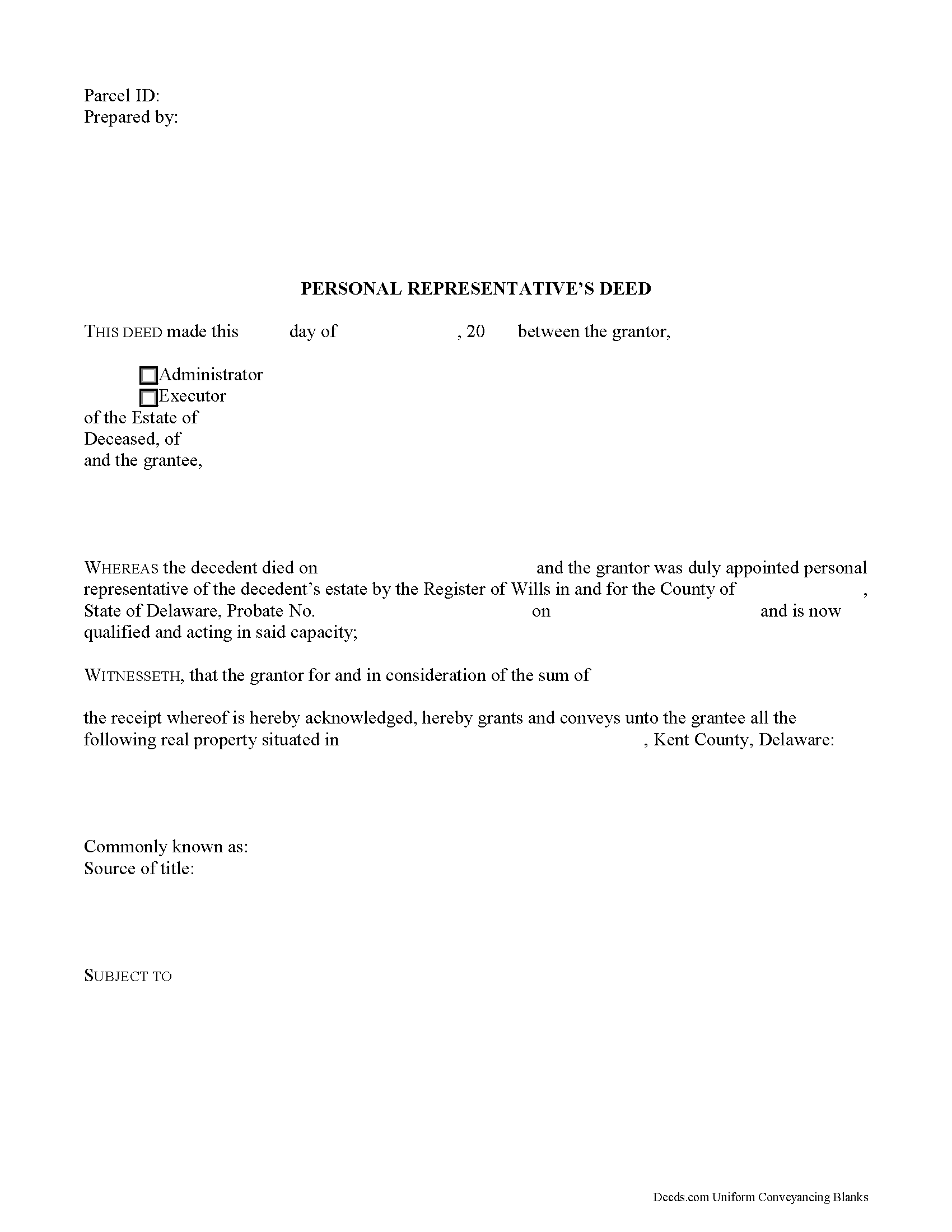Delaware Personal Representative Deed Overview

How to Use This Form
- Select your county from the list on the left
- Download the county-specific form
- Fill in the required information
- Have the document notarized if required
- Record with your county recorder's office
This form is for use by authorized personal representatives to convey real property.
The statutory form for a conveyance of real property in Delaware is a special warranty deed. In a personal representative's deed, the administrator or executor is the grantor, conveying all the title that the decedent had at the time of death to the grantee. The terms "grant and convey" warrant the title against the grantor and all persons claiming under the grantor (25 Del. Co. 121). In addition to requirements of a statutory deed, the personal representative's deed includes information about the decedent, including name, date of death, and information regarding the open estate.
The personal representative signs the deed in the presence of a notarial official and records the deed and all necessary supporting documents in the Recorder of Deeds office where the property subject to transfer is located.
Consult a lawyer with questions regarding personal representative's deeds or other issues with probate in Delaware.
Important: County-Specific Forms
Our personal representative deed forms are specifically formatted for each county in Delaware.
After selecting your county, you'll receive forms that meet all local recording requirements, ensuring your documents will be accepted without delays or rejection fees.
How to Use This Form
- Select your county from the list above
- Download the county-specific form
- Fill in the required information
- Have the document notarized if required
- Record with your county recorder's office
Common Uses for Personal Representative Deed
- Transfer property between family members
- Add or remove names from property titles
- Transfer property into or out of trusts
- Correct errors in previously recorded deeds
- Gift property to others